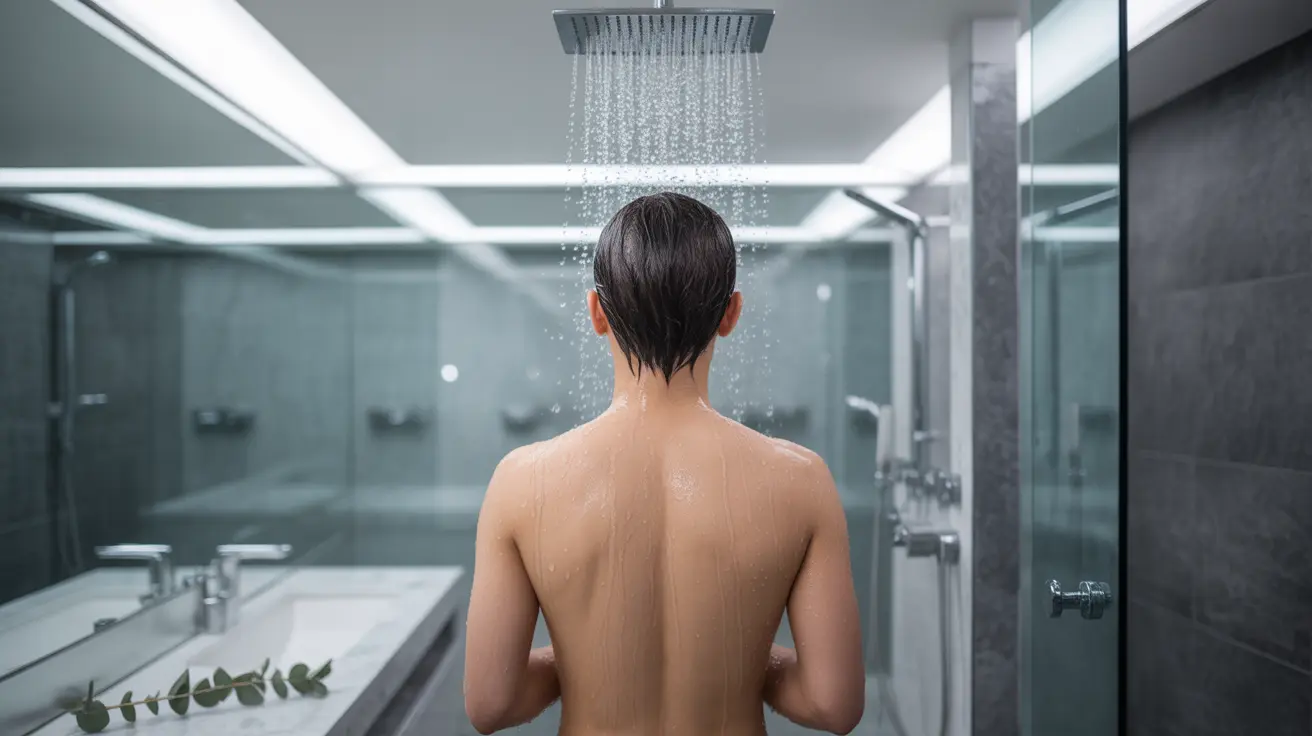The practice of taking a cold shower before bed has gained attention for its potential effects on sleep quality and overall well-being. While it might seem counterintuitive to some, understanding how cold water exposure affects your body and sleep patterns can help you make an informed decision about incorporating this habit into your nighttime routine.
In this comprehensive guide, we'll explore the relationship between cold showers and sleep, examining both the benefits and potential drawbacks of this practice. We'll also look at how timing and temperature can influence your sleep quality.
The Science Behind Cold Showers and Sleep
When you expose your body to cold water, several physiological responses occur that can influence your sleep patterns. The immediate effect is a surge in alertness due to the release of stress hormones like cortisol and norepinephrine. This initial stimulation is followed by a complex cascade of bodily responses that can actually promote better sleep later.
Cold water exposure also triggers the body's natural thermoregulation process, which plays a crucial role in your sleep-wake cycle. As your body warms up after the cold shower, this natural temperature regulation can help prepare you for sleep.
Impact on Recovery and Inflammation
Cold showers before bed offer several potential benefits for physical recovery and inflammation reduction. The cold exposure can help:
- Reduce muscle soreness and inflammation
- Improve circulation
- Decrease swelling in joints and muscles
- Support the body's natural recovery processes
These effects are particularly beneficial for athletes or individuals dealing with physical stress from daily activities.
Timing Your Cold Shower for Optimal Sleep
The timing of your cold shower can significantly impact its effects on sleep. Taking a cold shower too close to bedtime might be counterproductive, as the initial shock can increase alertness. Instead, consider scheduling your cold shower 60-90 minutes before your intended bedtime to allow your body temperature to regulate naturally.
Temperature Considerations
The ideal water temperature for pre-bed showers doesn't need to be extremely cold. A moderately cool temperature (around 60-68°F) can provide benefits while being more tolerable than very cold water. You can also start with a warmer temperature and gradually decrease it to make the experience more comfortable.
Cold vs. Warm Showers: Making the Right Choice
While cold showers have their benefits, warm showers before bed have traditionally been recommended for better sleep. The choice between cold and warm depends on various factors, including:
- Your personal sleep patterns
- Physical activity levels
- Current health status
- Individual temperature sensitivity
- Time of year and ambient temperature
Frequently Asked Questions
How does taking a cold shower before bed affect my ability to fall asleep and sleep quality?
A cold shower before bed can initially increase alertness but may ultimately improve sleep quality by triggering the body's natural temperature regulation process. The key is timing - taking the shower 60-90 minutes before bedtime allows your body to properly regulate its temperature for optimal sleep.
What are the benefits of a cold shower before bedtime for muscle recovery and reducing inflammation?
Cold showers before bed can help reduce muscle soreness, decrease inflammation, improve circulation, and support the body's natural recovery processes. This is particularly beneficial for active individuals or those experiencing physical stress.
Can a cold shower before sleep cause overstimulation or make it harder to relax?
Yes, taking a cold shower immediately before bed can cause overstimulation due to the release of stress hormones. To avoid this, schedule your cold shower at least an hour before bedtime to allow your body to return to a relaxed state.
How does a cold shower before bed influence body temperature and the natural sleep cycle?
Cold showers trigger the body's thermoregulation process, which can help align with your natural sleep-wake cycle. After the initial cooling, your body naturally warms up, which can promote drowsiness and better sleep quality.
Is it better to take a cold shower or a warm shower before going to sleep?
The choice between cold and warm showers depends on individual factors and preferences. While warm showers are traditionally recommended for better sleep, cold showers can be beneficial if timed correctly and may offer additional recovery benefits. Consider experimenting with both to determine what works best for your sleep routine.




